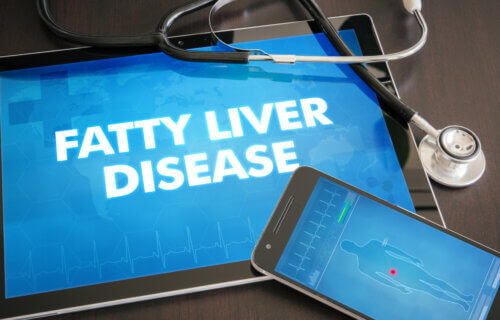SHANGHAI, China — Non-alcoholic fatty liver disease (NAFLD), caused by a buildup of fat in the liver, is estimated to affect about 30 percent of the worldwide population and 25 percent of all American adults. To call the condition common would be a massive understatement. Sadly, there are no approved medicines available to treat NAFLD. However, promising new findings out of China suggest a resistant starch supplement can help fight liver issues.
Resistant starch is a nondigestible fiber known to ferment in the large intestine. While that doesn’t sound all that appetizing, its consumption has previously been shown to positively affect metabolism across numerous animal studies. This latest study shows that daily intake of resistant starch can change gut bacteria composition and lower liver triglycerides and enzymes associated with liver injury and inflammation in patients with non-alcoholic fatty liver disease.
Left untreated, NAFLD can eventually lead to severe liver diseases and contribute to other serious health problems like Type 2 diabetes and cardiovascular disease. Doctors typically recommend dietary changes and exercise to alleviate NAFLD conditions.
“We think it would be very meaningful if we can find an effective approach, maybe through identifying new therapeutic targets, to manage NAFLD,” says Huating Li, the paper’s co-corresponding author at Shanghai Sixth People’s Hospital, in a media release.
How does resistant starch improve health in NAFLD patients?
Prior studies indicate NAFLD is associated with perturbed gut microbiota. For instance, those with early-stage NAFLD usually show an altered gut bacteria profile. So, Li and the research team set out to investigate if resistant starch, a type of fiber understood to encourage the growth of beneficial gut bacteria, may help treat NAFLD.
To that end, researchers recruited 200 NAFLD patients and gave each one a balanced dietary plan designed by a nutritionist. Meanwhile, 100 patients were also given a resistant starch powder derived from maize, and another 100 received calorie-matched non-resistant corn starch as a control. All subjects were instructed to drink 20 grams of the starch mixed with 300 mL water (1 ¼ cups) before meals twice daily for four months.

Results show that those who were given the resistant starch treatment had nearly 40 percent lower liver triglyceride levels in comparison to those placed in the control group. Moreover, patients given the resistant starch treatment also enjoyed lower levels of liver enzymes and inflammatory factors associated with NAFLD. Crucially, these benefits remained apparent even after researchers statistically adjusted for weight loss.
“Our study shows resistant starch’s impact in improving patients’ liver conditions is independent of body weight changes,” explains Yueqiong Ni, the paper’s co-first author at Shanghai Sixth People’s Hospital and Leibniz Institute for Natural Product Research and Infection Biology – Hans-Knöll-Institute (HKI) in Germany.
Gut health booster
The analysis of patients’ fecal samples revealed that the resistant starch group had a different microbiota composition and functionality than the control cohort. More specifically, treatment-group patients had a lower level of Bacteroides stercoris, a key bacterial species capable of affecting fat metabolism in the liver through its metabolites. The drop off in B. stercoris is strongly linked to the observed decrease in liver triglyceride content, liver enzymes, and metabolites.
After researchers transplanted fecal microbiota from resistant starch-treatment patients to mice fed with a high-fat, high-cholesterol diet, the rodents experienced significant reductions in liver weight and liver triglyceride levels and improved liver tissue grading in comparison to mice given microbiota from the control group.
“We are able to identify a new intervention for NAFLD, and the approach is effective, affordable and sustainable. Compared with strenuous exercise or weight loss treatment, adding resistant starch to a normal and balanced diet is much easier for people to follow through,” Li concludes.
The study is published in Cell Metabolism.

Also, look into milk thistle. 500-1000 MG daily for several decades (70+ now) has kept my liver readings normal despite 1-2 daily drinks (mostly hard cider, with 2-3 hard drinks per week).
“Your mileage may vary”